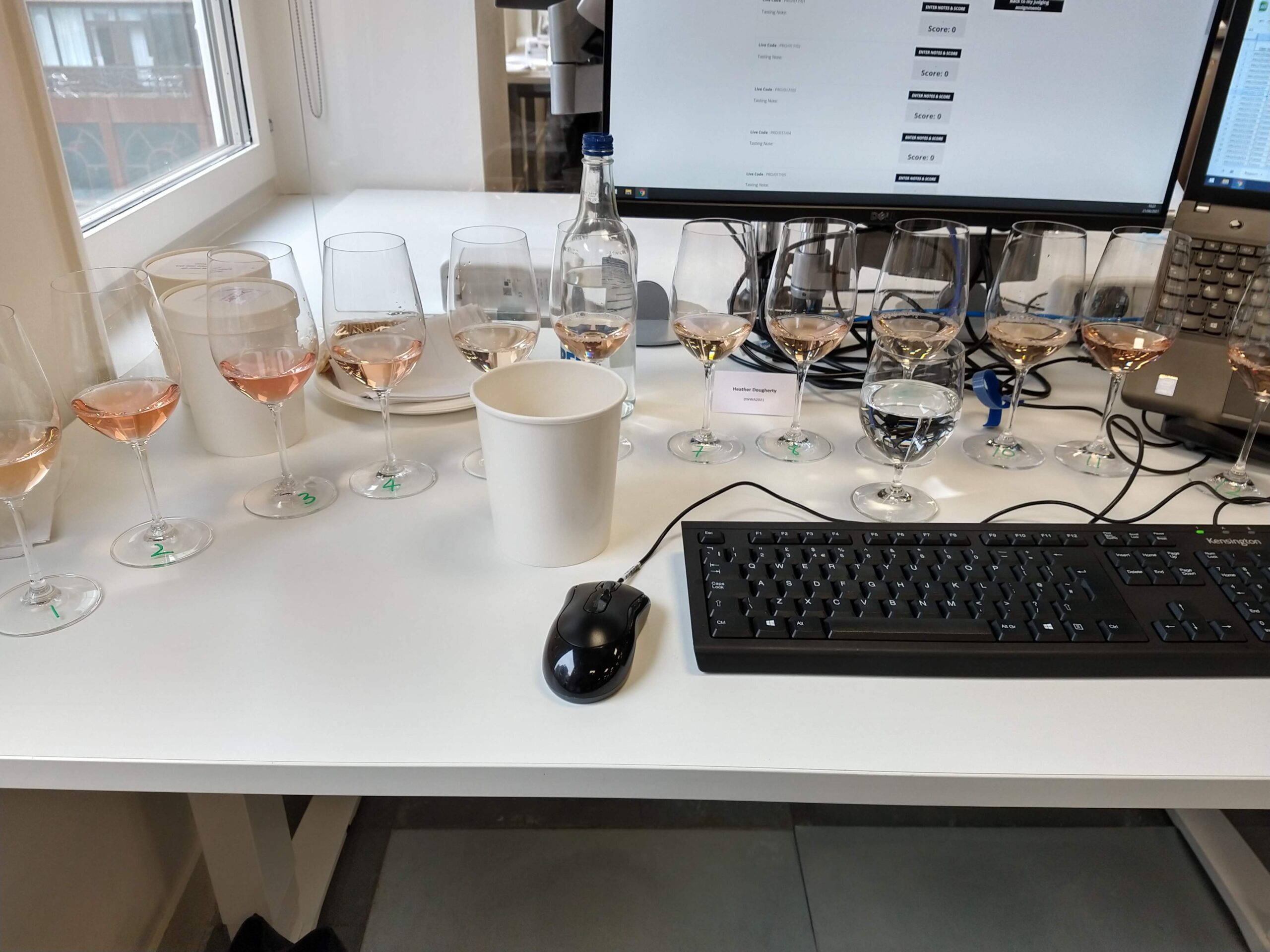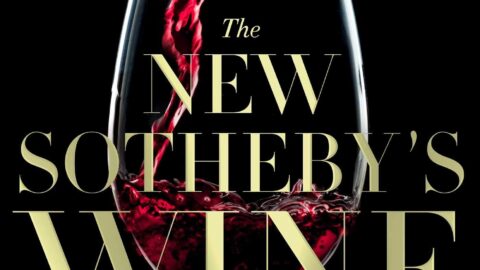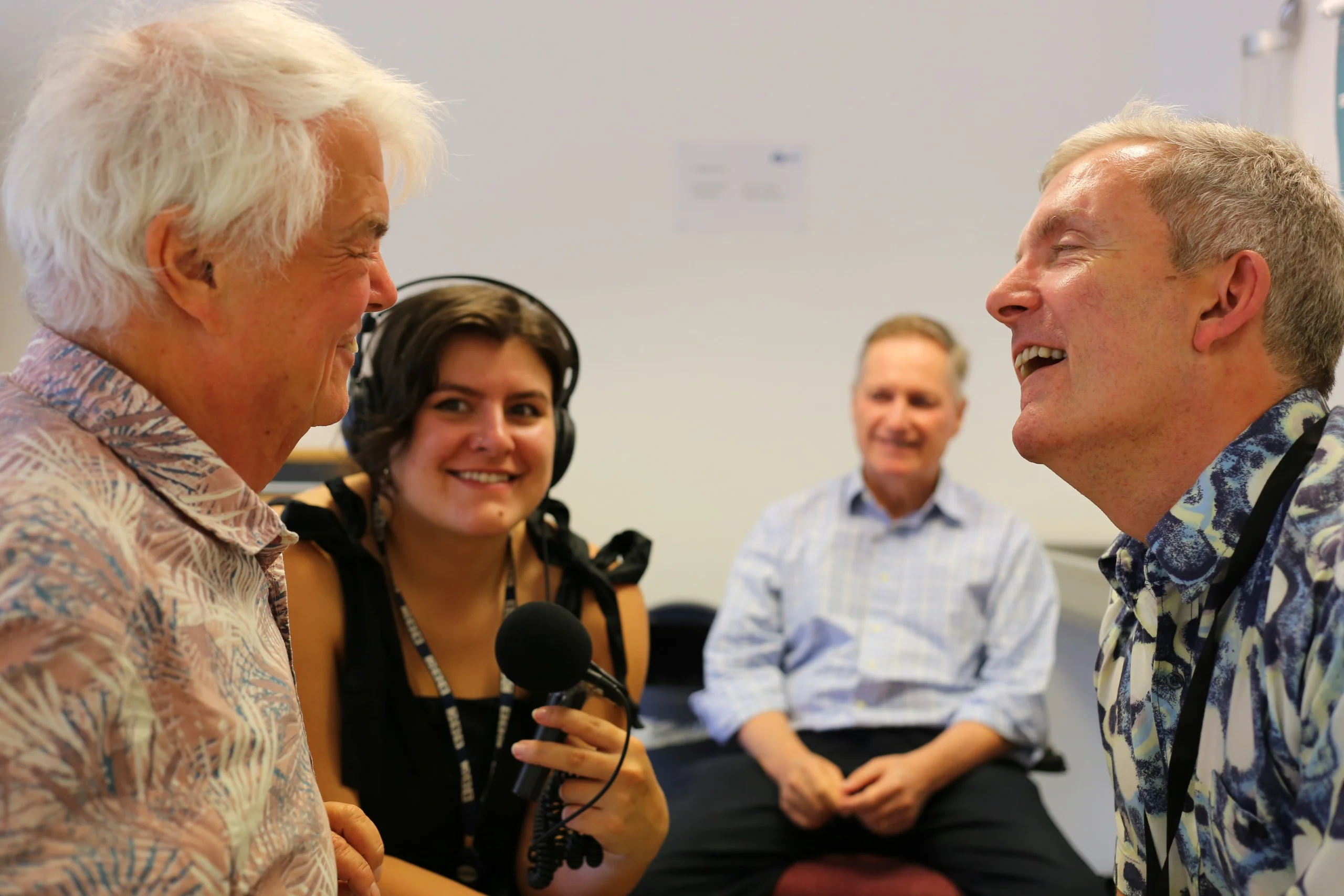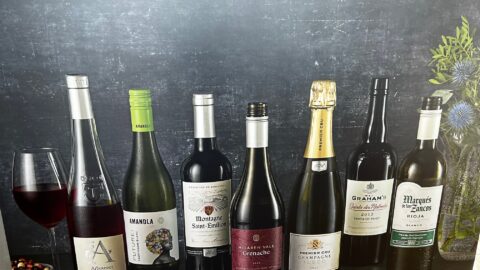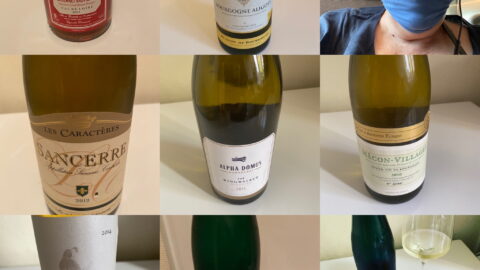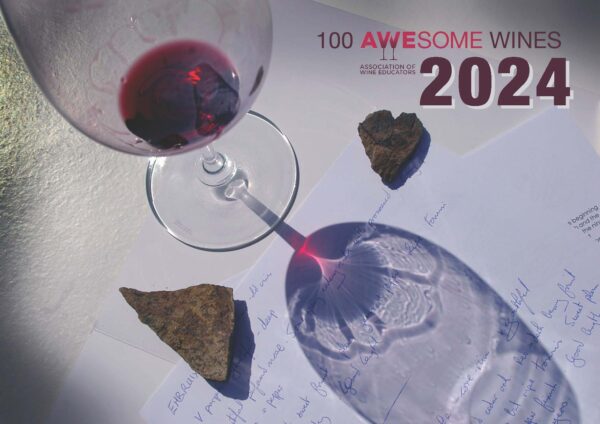Black, sometimes sore, teeth; struggling to find an original way to describe the 80th wine of the day; dehydration; palate fatigue – sound familiar?
Like quite a few fellow AWE members, I judge at wine competitions, and this past week have spent 3 days at the Decanter World Wine Awards.
Each of the major wine competitions has its own particular ways of doing things, but essentially they boil down to a group of people assessing a number of wines blind and reaching a consensus on the quality of those wines. At Decanter, they believe in having subject matter experts assess the wines, so I had a day of Southwest France (and all the other little bits of France that don’t fit into the other categories) and two days judging Provence.
Provence means one thing: lots of rosé. So the picture at the top here was pretty much what I was faced with for those two days. While rosé may not be as hard on the teeth as flight after flight of tannic reds (I pitied the Bordeaux panel), there is still the acid to contend with, not to mention the challenge of teasing out the nuances between wines which, at first glance/taste, are pretty similar.
So what did I learn? We all develop our ways of getting through a judging day and making the process enjoyable as well as challenging. These work for me, but I would love others to contribute their own top tips for wine judges.
- dairy seems to be a good way to help neutralise the effect of acid on teeth and gums, so I make sure to have a milky coffee at every opportunity, as well as cheese at lunch (helped by the fact that Decanter have a great selection of cheeses from Neal’s Yard).
- drinking water is a must – someone once told me that we shouldn’t forget that when you spit out a wine, you’re spitting out saliva too. So over a day’s judging, dehydration is a real issue unless you regularly top up with water. It also helps refresh the palate between flights.
- when you know that you will be judging lots of stylistically similar wines, ration your aroma/flavour descriptors for each wine in your tasting notes (Decanter requires tasting notes for all wines, regardless of their score). This was suggested to me by a Master of Wine and I’ve taken it to heart – don’t blow a whole list of great descriptors on one wine, or you’ll exhaust your vocabulary very quickly.
- and finally, face masks can come in very handy for hiding those black teeth (and boozy breath) from fellow tube/train passengers on the way home. I may keep this habit, even when masks stop being compulsory!
Please do share your own wine judging survival tips in the comments.
Tags: Decanter Provence rosé wine awards wine judging
